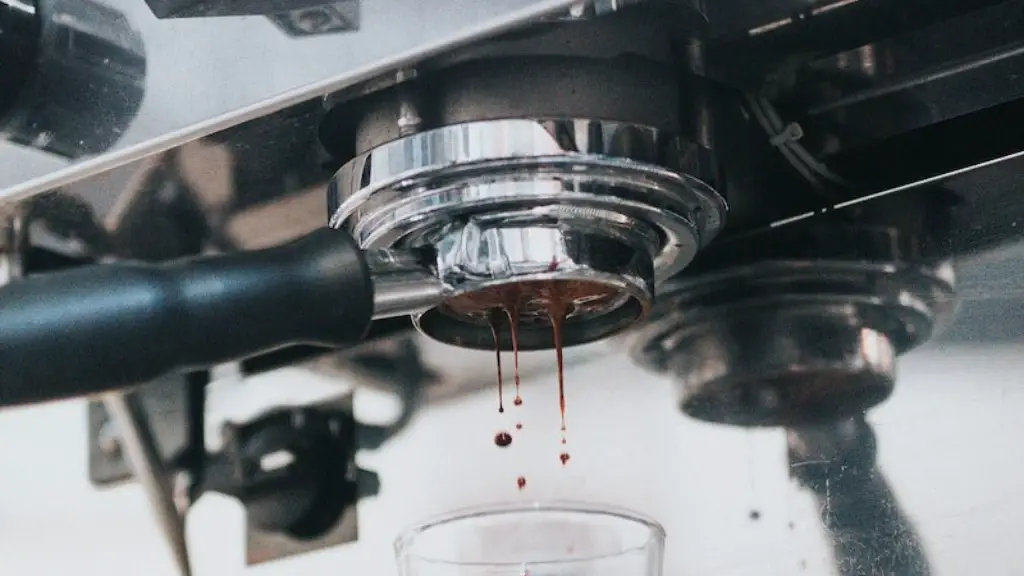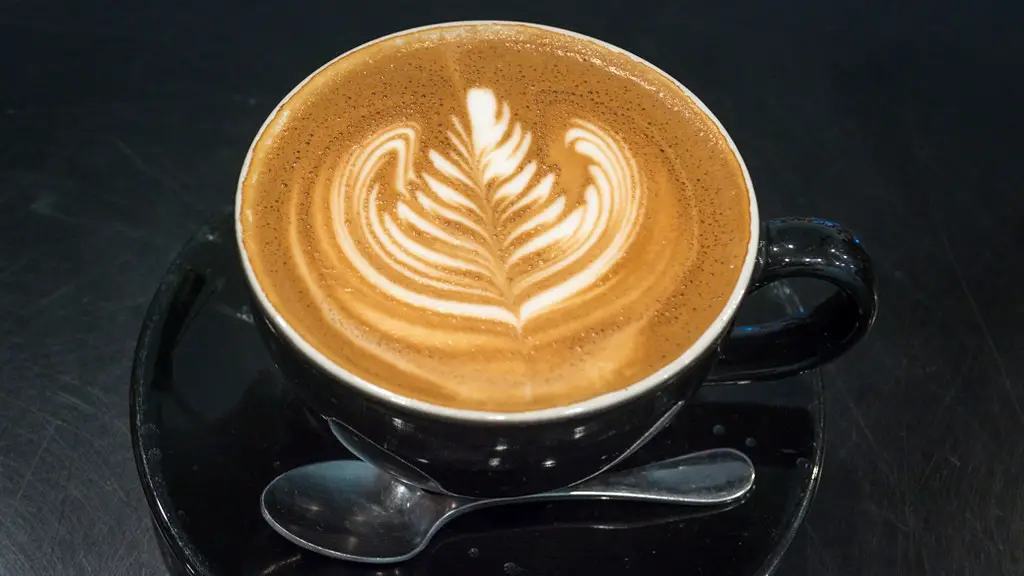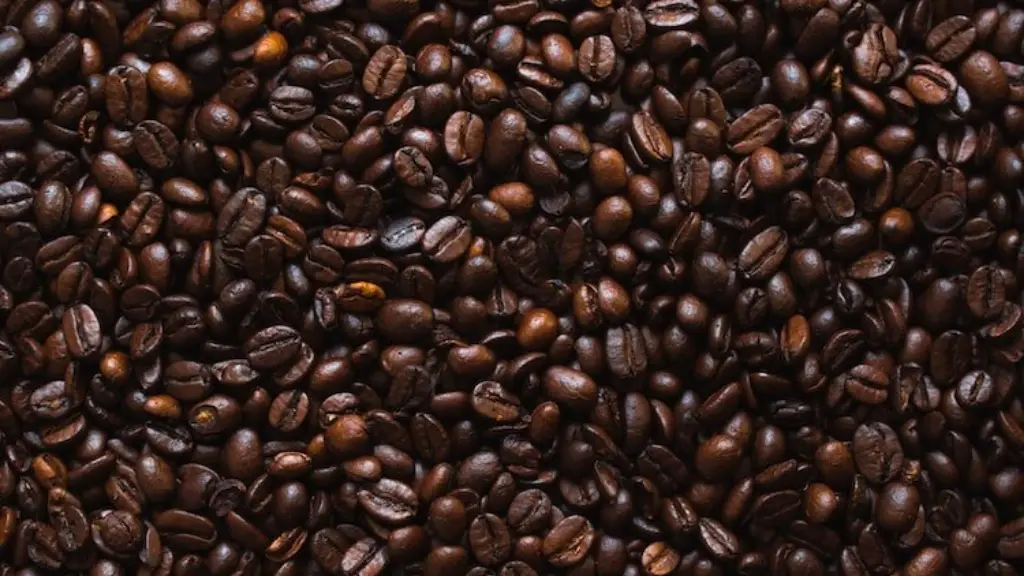It is widely known that drinking coffee on an empty stomach can lead to health concerns. This is because coffee is a stimulant, which can lead to increased stress hormones, glucose levels and some other detrimental effects on the body when consumed in excess or too often. As such, it is important to consider the implications that might arise from drinking coffee on an empty stomach before you choose to do so.
Coffee is known to affect the digestive system, as the acids it contains can cause irritation and speed up digestion. This can lead to discomfort, an increase in stomach acids and an inability to absorb nutrients properly. There is also a risk of increased risk of acid reflux, nausea and bloating.
According to nutritionist Dr. Basira Banks, it is advisable to only drink a cup of coffee on an empty stomach, as consuming more than that can have negative effects. “Having coffee on an empty stomach can lead to a sense of restlessness and stress which may lead to overstimulation of the nervous system,” she says. Additionally, she warns that people who are prone to anxiety or a feeling of needing to stay alert can find themselves in trouble if they drink too much coffee on an empty stomach.
Health experts also point out that, since coffee can potentially have a laxative effect, those with chronic digestive problems may experience further issues if they drink coffee on an empty stomach. Furthermore, if you have medical conditions such as type 2 diabetes, it is recommended to avoid drinking coffee without food altogether.
Moreover, caffeinated beverages can also contribute to dehydration when consumed on an empty stomach. This is because the stomach absorbs caffeine faster before the body has the opportunity to absorb the water in the drink. As such, it is best to drink your coffee with a meal or snack to avoid potential dehydration.
It is also important to note that coffee can increase the release of cortisol, which is the body’s stress hormone. Chronically high levels of cortisol can lead to a number of health issues, so it is best to be mindful of your coffee consumption, even if you choose to have it on an empty stomach.
Effects of Too Much Caffeine
Too much caffeine can have a myriad of negative effects, even when you may not have the usual early morning jitters. Medical professionals have linked too much caffeine consumption to insomnia, anxiety and even a raised risk of diabetes. Spending too much time in a hyper-alert state can also stress out your adrenal glands, leading to a number of serious health issues.
Additionally, it is also important to keep in mind that feeling the effects of caffeine for a second or third cup may not be something you feel immediately. It is not necessarily a linear process, and it is possible that you may experience the effects of the beverage after about an hour or two.
Nevertheless, drinking coffee on an empty stomach can be helpful for those who are looking for an extra energy boost or a raise in productivity. It should be done with caution, however, and it is best to consult a health professional if necessary.
Alternative to Coffee
If you are concerned about the potential negative consequences of drinking coffee on an empty stomach, there are a few other alternatives available. As coffee is a great source of antioxidants and polyphenols, you can opt for teas such as green and herbal teas that provide the same benefits.
Moreover, natural energy-boosting food and drinks that are lower in caffeine can also help you get through your morning. This could include things such as smoothies, overnight oats, kombucha, fruit-infused water or even adding a spoonful of nut butter to your smoothie for a healthy snack with a protein boost.
While coffee may be a tempting option in the morning, it may not be the best choice for everyone. It is important to take into consideration all of the potential side-effects and long-term health implications of drinking coffee on an empty stomach.
What Is the Best Time to Have Coffee?
The best time to drink coffee is between 10am and 12pm. This is because this time period is when the body releases cortisol naturally, which provides a boost of energy. Therefore, having your cup of coffee at this time will not disturb the natural rhythm and may even enhance it.
Additionally, having your cup of joe at this time is beneficial because it will allow you to stay alert throughout the day. This can help ensure that you get more quality tasks done while feeling energized and refreshed.
At the same time, it is important to remember that the best time to drink coffee will depend on the individual. Even if you find that 10am to 12pm work for you, it does not necessarily mean that it is true for everyone. It is best to experiment with different times to find out what works for you.
Possible Benefits of Coffee
Even though drinking coffee on an empty stomach should be done with caution, it is important to remember that coffee can still have some health benefits. In fact, moderate coffee consumption may reduce your risk of developing chronic diseases such as heart disease, type 2 diabetes and certain types of cancer.
Coffee can also help boost your mood and improve productivity. Studies have shown that those who drink coffee within two to three hours of waking up achieved their daily tasks the quickest and the easiest. Additionally, those who drank coffee got higher scores on their exams when compared to those who did not.
Furthermore, coffee can help improve memory and concentration. This is because caffeine has been found to increase the levels of “feel good” neurotransmitters in the brain and reduce feelings of weariness or fatigue. Caffeine can also help increase alertness and mental performance, as well as stimulate the release of dopamine, one of the body’s “happy” hormones.
Finally, coffee can also help boost your energy levels by increasing the release of serotonin and noradrenaline in the body. This can provide a feeling of alertness and focus, making it easier to power through your day.
Final Considerations
In conclusion, there are both positive and negative considerations when it comes to drinking coffee on an empty stomach. It is important to remember that moderation is key and to listen to your body when it comes to consumption. If you’re feeling any sort of unpleasant symptoms, it is best to consider alternatives such as herbal teas. Additionally, it is best to consume coffee at certain times of the day, such as between 10am and 12pm.
Those looking for an energy boost should also consider natural foods and drinks lower in caffeine or opt for snacks such as smoothies or overnight oats. Taking these tips into account can help keep your health in check while ensuring that you get the alertness you need without the potential negative side-effects associated with coffee consumption on an empty stomach.





